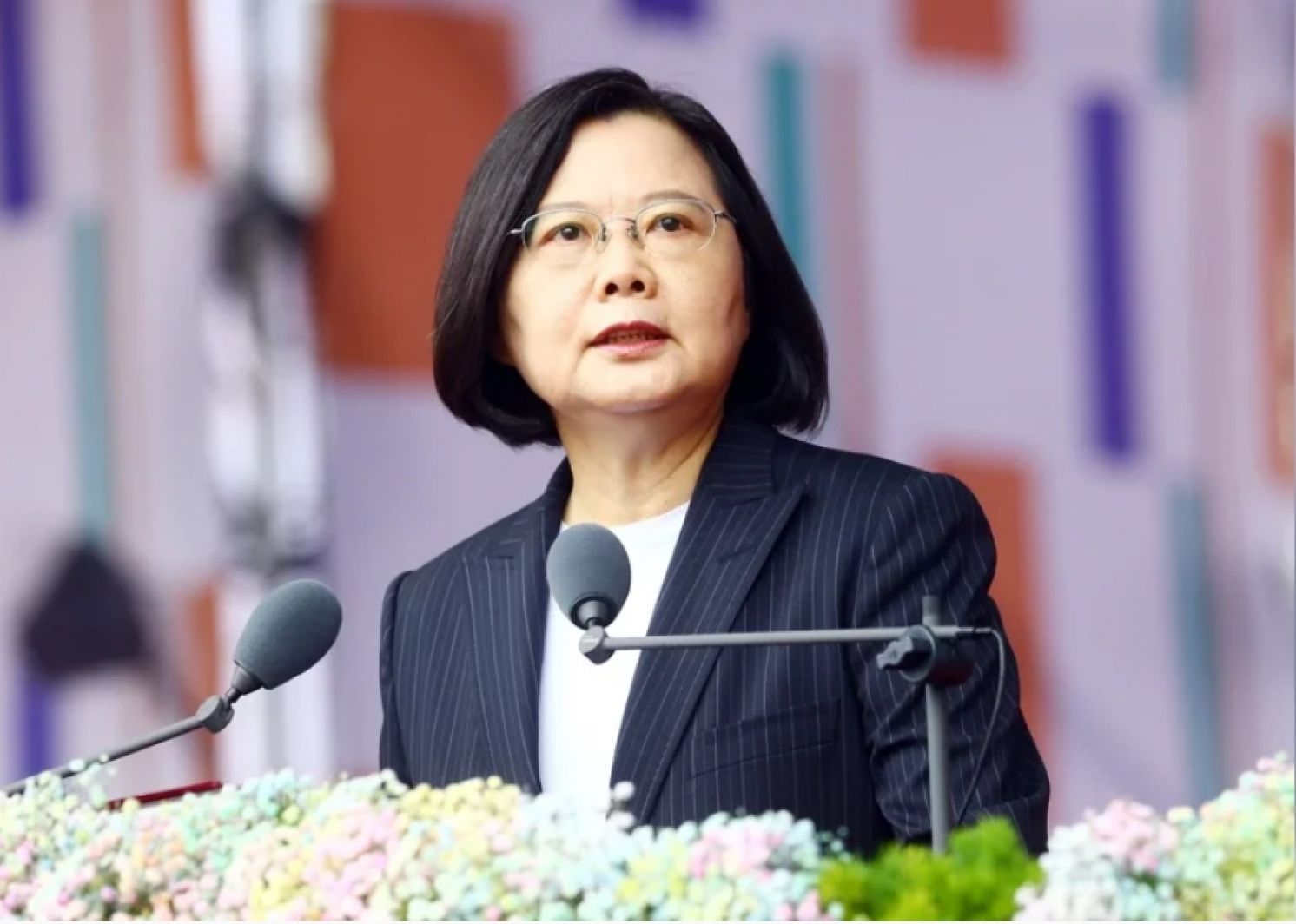
President Tsai: Open to Dialogue with Beijing Based on Respect and Understanding
United Daily News, October 11, 2020
In her National Day address yesterday, President Tsai Ing-wen stated that her administration is determined to maintain stability in cross-strait relations, but Taiwan cannot shoulder it alone. According to President Tsai, it is the joint responsibility of both sides of the Taiwan Strait. She also proposed that with parity and dignity, Taiwan is willing to facilitate meaningful dialogue. The opposition parties called on President Tsai to change herself and not to choose sides or resort to slogans of hipster styles.
As Beijing leader said that China will never seek hegemony, President Tsai hoped that it is the beginning of a genuine change. President Tsai pointed out that recently the leader of the other side stated in a video message to the United Nations that “China will never seek hegemony, expansion, or a sphere of influence”. As countries of the region and around the world are concerned about China’s expanding hegemony, Tsai hoped that this is the beginning of a genuine change.
President Tsai said that if Beijing can heed Taiwan’s voice, change the way it handles cross-strait relations, and jointly facilitate cross-strait reconciliation and peaceful dialogue, she believes that regional tension can be resolved.
As to the continued harassment by mainland China’s military, President Tsai said that the most pressing cross-strait issue is to discuss how we can live in peace and coexist based on mutual respect, goodwill, and understanding. However, Tsai also said that showing weakness and making concessions will not bring peace; adequate preparation and reliance on the determination and strength of solid national defense capabilities is the only way to guarantee Taiwan’s security and maintain regional peace.
President Tsai also pointed out that Taiwan will continue to modernize defensive combat capabilities and accelerate the upgrading of its asymmetrical capabilities to deal with military expansion and provocation from the other side of the Taiwan Strait. She said that as Taiwan procures foreign military hardware, it still remains dedicated to accelerating its self-defense capabilities. Taiwan takes dual-track approach to strengthen its defensive capabilities. Tsai said that in order to avoid potential conflicts due to miscalculations and accidents, Taiwan will address threats to regional peace and stability by upholding the principle of neither fearing nor seeking war.
Opposition parties urge Tsai not to choose sides or resort to slogans of hipster styles. The Kuomintang (KMT) pointed out that if President Tsai genuinely wishes to reopen cross-Strait dialogue, she should change herself and restrain Democratic Progressive Party (DPP) members not to hurt Taiwanese compatriots who are dedicated to maintain cross-strait peace. By doing so, President Tsai can show her determination in maintaining cross-strait peace. Legislator Chang Chi-lu of the Taiwan People’s Party said that he hopes to see a concrete strategy of the way to live in peace and coexist. Chang said that the current cross-strait situation is severe. Facing the U.S.-China confrontation, if Taiwan is not careful, it could become the biggest sacrifice. The government should not choose sides or resort to slogans of hipster styles.
Spokeswoman Zhu Fenglian of China’s Taiwan Affairs Office, State Council, responded by saying that only by returning to the political basis of “1992 consensus” can the cross-strait dialogue be restarted, can the cross-strait relations be improved, and can the peace and stability across the Strait be achieved. Zhu pointed out the fundamental reason for current cross-strait tensions is the DPP authorities’ refusal to recognize the “1992 Consensus,” which is based on the “One China” principle, and the DPP’s interference and blocking of cross-strait interaction and cooperation.
Scholars: to stabilize the situation and leave directions for mutual cooperation.
Associate Professor Alexander Huang of the Institute of Strategic Studies of Tamkang University said that the harassment by China’s warplanes did not tone down the contents of President Tsai’s address. As president, Tsai cannot allow the tension to escalate, so it is a good thing not to pour oil over fire and to stabilize the situation.
Adjunct Professor Yan Cheng-sheng of the Department of Political Science of the National Chengchi University said that as President Tsai stated, it is the joint responsibility of both sides to maintain cross-strait stability, she did not give all the responsibility to China, thus leaving room for future cooperation.
President Tsai’s National Day address consisted of four parts: “Pandemic Prevention Contributions to the World, ” “Economic Strategies under New Circumstances,” “Solid National Defense to Maintain National Security,” and “Proactive Participation in Regional Collaboration”. As before, the issue of the cross-strait stability is covered in the part of regional collaboration.
President Tsai stated that during this period, the government has been paying close attention to changes in regional security. Taiwan must turn the trying times into a historical opportunity. Strategically, Taiwan will maintain flexibility and respond to changes agilely. As circumstances change, advance preparation is the only way to avoid drifting with the current or have others decide Taiwan’s future.
From: https://udn.com/news/story/10474/4926150
〈Back to Taiwan Weekly Newsletter〉